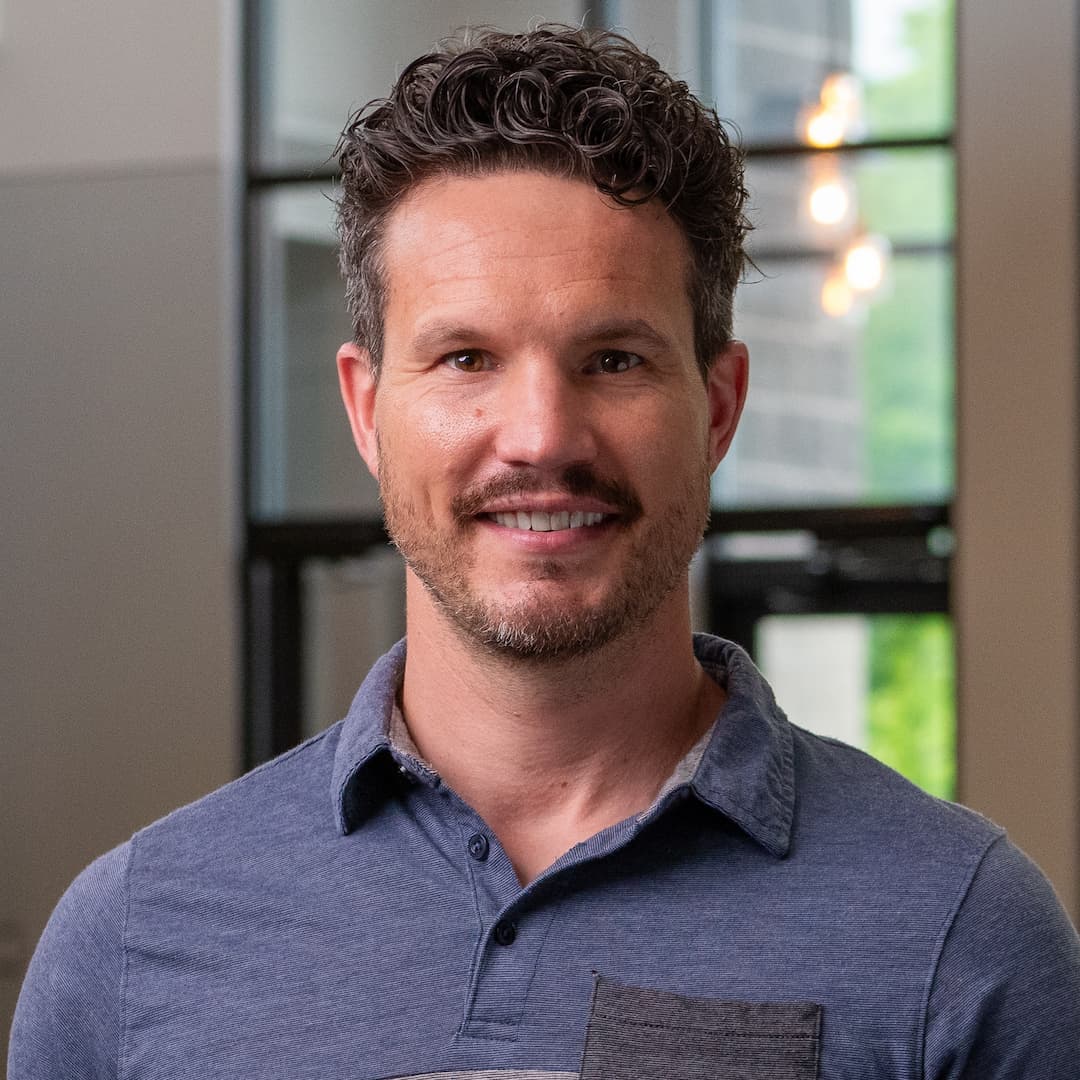You are what you eat.
This is why getting in shape starts in the kitchen. The foods we consume contain the nutrients we need for our bodies to function. Of course, not all foods are created equal. There’s a big difference between how a Big Mac plus fries fuels your body compared to a grain bowl with a protein shake.
More research is coming out every day showing how the foods we consume impact the functioning of our entire bodies — our brains, our gut, and even our moods.
We are shaped by what we consume
But it’s not just food consumption that shapes us. It’s everything we consume — music, social media, Netflix and Hulu. Everything we consume has a shaping influence on the people we become.
John Mark Comer, pastor and author from Portland, Oregon summarizes it this way:
"Everything we allow into our minds has an affect on our souls, for good or for evil. What we give our attention to will shape the persons we become."1
Being shaped and formed is what discipleship is all about. And, in the end, we are all disciples of someone or something. The question isn’t: are you being shaped or formed? The question is: by what or whom are you being shaped or formed?
Being shaped and formed is what discipleship is all about.
Everyone is being shaped or formed by someone or something. Everyone.
In his book, Live No Lies, John Mark Comer puts it this way:
"Spiritual formation isn’t just a follower of Jesus thing; it’s a human thing. We’re all being formed every minute of every day. We’re all becoming someone. Intentional or unintentional, conscious or subconscious, deliberate or haphazard, we’re all in a process of becoming a person."2
We are all disciples. And we are all being discipled by what we give our attention to on a regular basis. What we give our attention to, what we attend to, the stuff we consume shapes us and plays a determinative role in who we become, how we view the world, inhabit our daily lives, and relate to those around us.
So what’s shaping us as followers of Jesus?
Three Giant Influencers in Our Culture
As followers of Jesus we want our answer to be Jesus. We’d like to be able to say with confidence that Jesus is the one shaping and forming us as people. And I suspect this is true to some degree. But, if we get honest, we also have to admit that there are other forces acting upon us that are also shaping us as people. Here are three giant influencers in our culture that also seem to be shaping us as people.
1. Screens
We spend a lot of time on our screens.
Globally, people spend on average 6 hours and 58 minutes per day looking at screens. The average American comes in just higher than this at 7 hours 4 minutes. A breakdown of screen usage indicates that about 2.5 hours is spent on social media, 3 hours watching TV, and the rest goes to computer usage.
We spend a lot of time on our screens! Our screens are discipling us in a big way.
Mark Sayers puts it this way:
"Even the most committed believer will consume only a fraction of the information and input from their church compared to what they consume via podcasts, YouTube, and Netflix. The digital network is now our primary formational environment. It shapes our opinions, values, and worldview. Today, the average churchgoer will Google a problem before they approach their pastor. The digital network is the primary shaper of their theological, political, and cultural worldview."3
If you watch 10 hours a week of FOX News, then FOX News is discipling you.
If you watch 10 hours a week of CNN News, then CNN is discipling you.
If you’re on TikTok or Facebook 5 hours a day, that’s what’s discipling you.
The stuff we are watching on our screens is shaping us, for good or for bad.
So what are you consuming as you look at your devices? And how is it shaping you?
2. Celebrities
Not only do we spend a lot of time on our devices, but we live in a celebrity culture.
People Magazine has the largest audience with an average monthly reach of over 81 million people. We love stalking celebrities. Here are the top five most followed celebrities on Instagram:
- Cristiano Ronaldo — 443 million followers
- Kylie Jenner — 339 million followers
- Lionel Messi — 328 million followers
- Selena Gomez — 320 million followers
- The Rock, Dwayne Johnson — 315 million followers
We are drawn to people with a platform. And it’s not just Hollywood superstars. We have our own Christian superstars that we follow. It seems everyone has a favorite pastor they listen to each week and a handful of notable Christians that they follow.
What’s important to recognize is that the platforms upon which celebrities stand are built upon our regular attention. We create platforms for people by stewarding our attention in their direction. And, as we give them our attention, they shape us and disciple us.
Not too long ago I was told about a guy who goes by the name Liver King on Instagram. So I followed him. He promotes an “ancestral lifestyle” that involves consuming lots of raw liver. Yuck. That’s super gross. But he has 1.7 million followers on Instagram. (He also recently had to come clean about taking PEDs, which does not jive with his ancestral lifestyle).
This is obviously a silly example. And there are countless other silly examples out there. The point is that the people we follow and listen to shape us into their image.
Rush Limbaugh passed away in 2021. Growing up, I remember my dad listening to Rush in the car while driving me to hockey practice. As of December 2019, Rush had a weekly audience of roughly 15.5 million listeners. Rush discipled — shaped, influenced, formed — a whole lot of people.
Of course, there is no escaping this completely. We all have people we follow, authors we read, folks we listen to. But if our primary aim in life is to be formed as disciples of Jesus, we must exercise some discretion, some wisdom and discernment, as to who we are being shaped by.
If our primary aim in life is to be formed as disciples of Jesus, we must exercise some discretion, some wisdom and discernment, as to who we are being shaped by.
So who are you following or listening to that is shaping how you view and inhabit the world?
3. Politics
A couple years ago, right in the middle of the pandemic, I ended up on a Zoom call with a group of pastors serving in various places across the country. The person leading the discussion asked all of us to write down the biggest challenge we were facing in leadership at the time. Every pastor said the same thing:
The biggest challenge I’m facing right now is leading a congregation that has been more discipled by partisan politics than the person of Jesus.
Over thirty years ago a missiologist named Leslie Newbigin predicted this would happen. He forecasted that as the global West becomes an increasingly post-Christian context, politics will become the new religion. Newbigin nailed it. Today people are pleading their ultimate allegiance to their political tribe.
One way this can be detected is by paying attention to how things get filtered.
Many people, even those who claim to be Christian, don’t actually filter the world through the lens of Jesus’ life and teachings. Instead, they filter everything, including Jesus, through their political lens. To the degree we do this, we end up following a Jesus constructed in our own political image. And the tail ends up wagging the dog.
As followers of Jesus, we pledge our ultimate allegiance to Jesus.
Not to the political right. Not to the political left. Not even to the political center.
If we are going to allow Jesus to be Lord and King, we must filter our politics through the lens of Jesus and not the other way around. We must refuse to allow our partisan politics to be Lord.
Jesus is not red. Sorry to all you Republicans.
Jesus is not blue. Sorry to all you Democrats.
Jesus is not purple. Sorry to all you Moderates.
Jesus is Lord and Jesus is King.
And, by the way, that is a political claim. We don’t follow an apolitical Jesus. We follow a Jesus who turned the world upside down and got killed for doing so. The early church followed in his footsteps. Nearly all the disciples were martyred. As we, the church, give witness to the good news that Jesus is King by embodying the way of Jesus in the world, we will be embodying an alternative politic to a world that desperately needs to see a better way.
So what would it look like for us to embody the politics of Jesus by taking seriously his life and teachings?
I submit to you that if and when the church does this, she will become a compellingly beautiful and subversive presence in the world, a community that gives witness to the in-breaking reign of God.
As we, the church, give witness to the good news that Jesus is King by embodying the way of Jesus in the world, we will be embodying an alternative politic to a world that desperately needs to see a better way.
Reflection Questions
- How is your screen time discipling you as a follower of Jesus?
- How are the celebrities you follow shaping you as a person?
- How is your political tribe forming you as a Christian?
1 John Mark Comer, The Ruthless Elimination of Hurry (WaterBrook, 2019), p.233.
2 John Mark Comer, Live No Lies (WaterBrook, 2021) p.92.
3 Mark Sayers, A Non-Anxious Presence (Moody, 2022), p.95.







